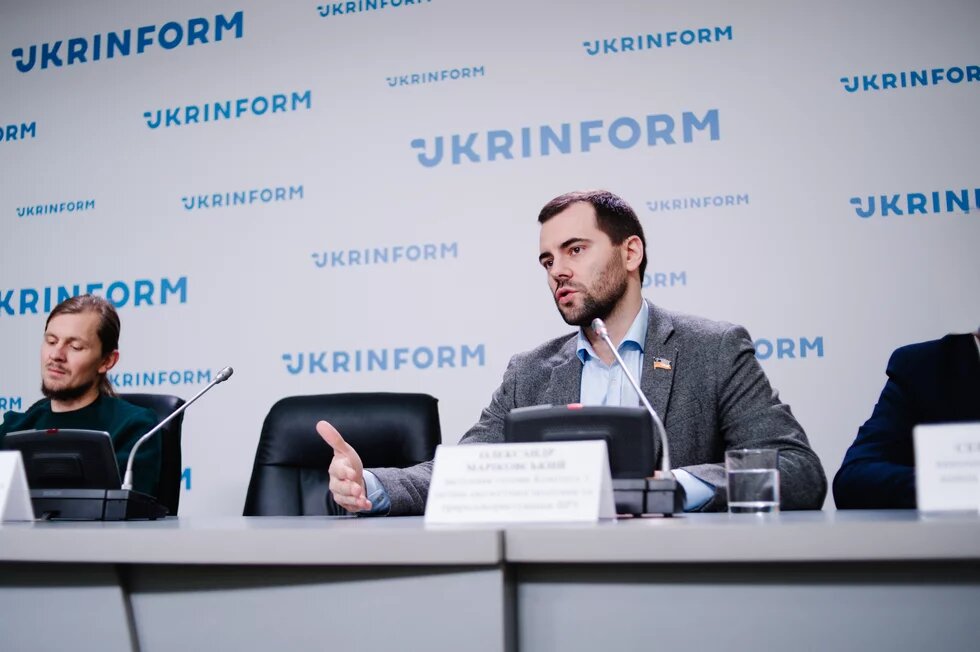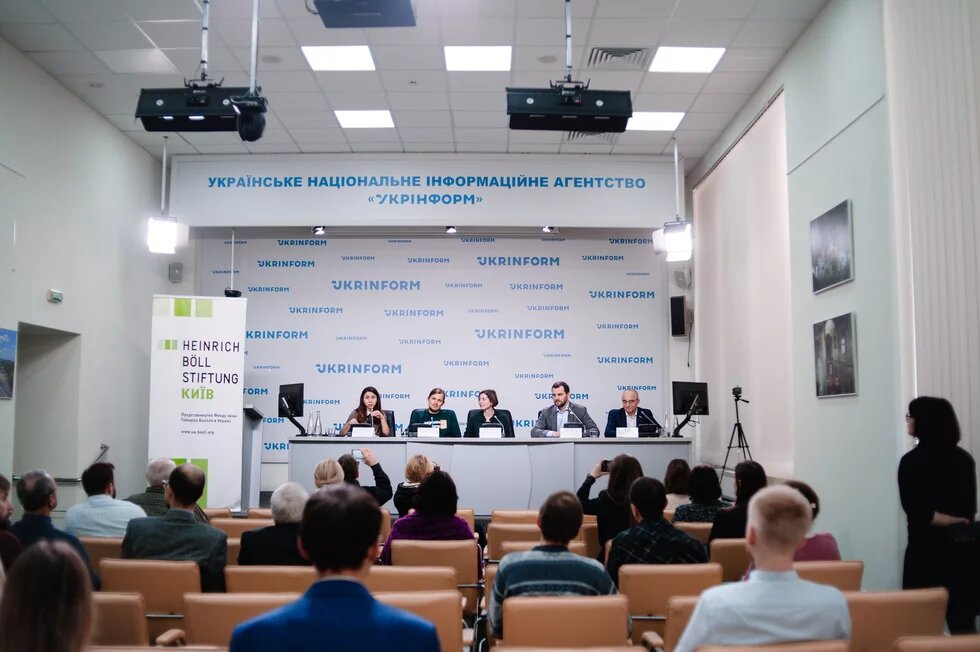

On December 18, the Ukrainian delegation has presented the results of participation in the annual Conference of Parties to UN Framework Convention on Climate Change (COP25). In Madrid, at the highest level of negotiations, Minister of Energy and Environmental Protection Oleksii Orzhel presented Ukraine’s new track towards fighting climate change.
“The Parliament has already made several important steps towards reducing greenhouse gas emissions. During the last days of climate negotiations in Madrid, the Verkhovna Rada voted for two draft laws connected with climate change: draft law No. 0874 on ozone depleting substances and fluorinated greenhouse gasses, and draft law No. 0875 on the fundamentals of monitoring, reporting and verification of greenhouse gas emissions. These draft laws were filed by the previous government, and it took us a while to decide whether to support them. These laws oblige polluting enterprises to set up sensors to measure their emissions to understand their volume. Understanding the emissions that these facilities generate, we change taxing of these emissions and thus change the responsibility. Our goal is to demotivate people from polluting the air,” says MP Oleksandr Marikovskyi, deputy head of the Parliament Committee on Environmental Policy and Natural Resources Utilization.
On Taxing Emissions and Green Tariff for Ukraine
“Last year we implemented taxes of up to UAH 10/ton for СО2. Compared to the previous years, this tax is 24 times as high. A draft law has already been registered to quadruple the tax for СО2 emissions. But taxes are not a universal solution. Heat and power plants and other polluting enterprises shouldn’t stop because that is not beneficial to Ukrainians. They have to continue meeting the need for energy resources,” continues Marikovskyi. “The green tariff will remain, but it will be restructured, the time frame for its payment will increase and the basic tariff will be reduced, since green tariff payments significantly affect the country’s economy. The strategy of 2050 development should include the transition to renewable energy (RES). It seems to me that our current green tariff is the highest one in the world (12 euro cents), which means we are doing something wrong. The functioning energy market will help to reduce the green energy tariff through competition. RES is the way to reduce pollution, but it’s not that simple: you have to strike a balance between the economy and the environment.”
On Results of This Year’s Climate Negotiations and New Direction of Ukrainian Energy Sector
In his presentation at the negotiations, Oleksii Orzhel spoke about the development of a vision for a green transition for the Ukrainian energy sector, which will include restructuring of the СО2 industry.
“In Ukraine, there’s a number of public mines which are loss-generating. At some of them, the landed cost of 1000 kg of coal goes up to UAH 60,000. It makes no economic sense for the government to support them. It makes way more sense to close these mines, but organize professional retraining of miners, introduce social programs and payments to miners and assist them with finding new jobs. Public mines are now being audited to decide on a plan of what mines are going to be closed and over what period. There are many international and foreign institutions who have already done this and who are ready to support us in this situation,” added Stavchuk.
The main goal of this year’s negotiations is to clarify the main rules of international trade of carbon quotas (Article 6). The countries failed to decide this. The delegates also failed to agree on the unified system of taking stock of emissions. They did agree, however, that in 2020, all countries have to submit updated nationally determined contributions to the Paris Agreement. The updated contributions must describe the real situation: RES technologies becoming cheaper and ambitious goals of each country. What is important for Ukraine in these negotiations is the rules of implementation mechanism of the Paris Agreement. Ukraine has started updating its nationally determined contribution and must complete this process no later than September 1, 2020. The country has been against quotas for emission units transfer from the Kyoto Protocol for several years now, since the market of quotas will only function when there is a demand for these quotas.
An additional political task for Ukraine at COP25 was raising the issue of Crimea. Russia includes the emissions in the occupied Ukrainian territories in its report, which contradicts the international law.
Role of Business and Cities in Reducing Emissions
“Climate negotiations are becoming a platform for cooperation not only of governments, but also of businesses, financial institutions and cities. This year, 600 investors signed an appeal to governments demanding a reduction of subsidies into the coal industry and a transition to low-carbon development. Governments must aim at climate neutrality. But as negotiations show, they find it challenging to reach an agreement. Cities can do it faster now and adopt local strategies of low-carbon development. The ability of countries and cities to transition to renewable energy is now unquestionable. Cities need to take it upon themselves. Seven Ukrainian cities have already made official statements on their goal to transition to 100% RES by 2050. There are over 247 such cities in the world now, as well as 33 states and areas,” pointed out Illia Yeremenko, head of the Ukrainian Climate Network.
The role of business in reduction of emissions and adaptation to climate change only grows every year.
“The higher is the tax for emissions in the country, the fewer enterprises can take it. But business has a solution: new projects on renewable energy and energy efficiency. By developing RES, we can reduce emissions and grow our economic potential at the same time. Our company supports the government’s strategy. There are other companies in the market which can reduce heating prices by using modern technologies,” said Serhii Savchuk, Executive Director of Clear Energy Group.
Recall that between December 2 and 15, almost 200 countries discussed how to reach the global goal of Paris Agreement — keep global warming within 1.5ºC. The countries have made the declaration Chile — Madrid. Time to Act, but they have so far postponed making key decisions on regulating the international market of carbon quotas (Article 6) until the upcoming negotiations in Glasgow (Scotland).
The video of the briefing is available here.
The event has been conducted with the support of Heinrich Boell Foundation, Kyiv Office — Ukraine.



